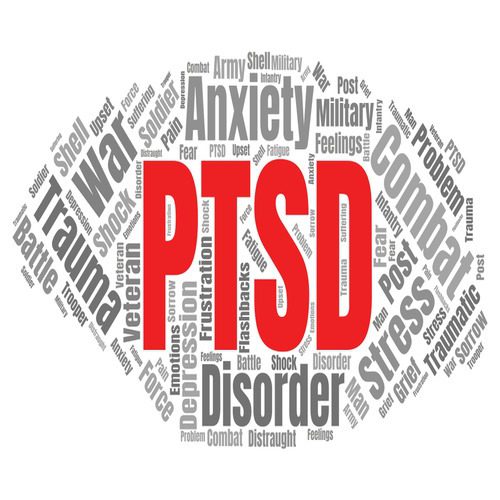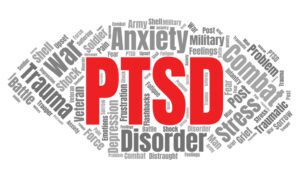Cystitis in Men : What Is It and Who Can Get It?
Cystitis is a common urinary tract infection (UTI) that primarily affects women, but it can also occur in men. Although …
Read More

Post-Traumatic Stress Disorder (PTSD) is a psychological health condition that can be incapacitating for people who have experienced traumatic events. An intricate disorder can significantly affect an individual’s life, connections, and general prosperity. In this article, we will dig into PTSD’s profundities, investigating its side effects, causes, predominance, and treatment options available to those suffering from it. By revealing insight into this frequently misjudged condition, we desire to cultivate greater understanding and support for those who are impacted by it.
Post-Response Stress Disorder, more commonly known as PTSD, is a mental disorder that happens following a traumatic event. It can appear in different ways and fundamentally disturb the individual’s day-to-day routine. The Symptomatic and Measurable Manual of Mental Disorders, Fifth Version (DSM-5), frames the models for diagnosing PTSD, which incorporate openness to a traumatic occasion, the presence of meddling side effects, evasion ways of behaving, negative changes in mindset and discernment, and modifications in excitement and reactivity.
PTSD appears through many side effects, which can be categorized into four principal classifications: meddling considerations, aversion, negative modifications in mindset and thinking, and hyper arousal. Meddling recollections often include clear and distressing recollections of the traumatic experience, flashbacks, or distressing dreams. Evasion side effects can incorporate endeavors to stay away from tokens of injury, like specific spots, individuals, or exercises. Pessimistic changes in mindset and thinking can prompt an awareness of responsibility, self-fault, and lessened interest in activities that were once a pleasure. Hyper arousal side effects may include being effectively alarmed, hyper vigilance, and trouble concentrating.
PTSD isn’t restricted to a particular segment of the population and can affect people of any age, sex, and background. As per the Public Organization for Emotional Well-being (NIMH), it is believed that around 7 to 8 percent of the populace will encounter PTSD sooner or later in their lives. The severity of PTSD can vary depending on the type and force of the traumatic experiences experienced. People who have been involved in battle, rape, or cataclysmic events have a higher chance of losing their lives.

While any traumatic event may trigger PTSD, certain experiences are generally associated with higher risk. These can include physical or sexual abuse, military battles, mishaps, catastrophic events, and seeing or being engaged in a hazardous situation. The seriousness of the injury, the length of the exposure, and the presence of an emotionally supportive network can impact the probability of PTSD.
Research has shown that PTSD influences the cerebrum neurobiology. Concentrates regarding neuroimaging strategies have distinguished changes in the amygdala, hippocampus, and prefrontal cortex, associated with profound guidelines, memory handling, and dread molding. These progressions can add to events’ turn and support PTSD side effects.
Luckily, there are some treatment options available for people experiencing PTSD. Psychotherapy, especially injury-centered treatments like cognitive behavioral therapy (CBT) and emotional desensitization and reprocessing (EMDR) has shown to help people to overcome and defeat their side effects. Drugs like particular serotonin re uptake inhibitors (SSRIs) may also be recommended to reduce the side effects of melancholy and uneasiness related to PTSD.
Early intervention is crucial for people who are experiencing side effects of PTSD. Perceiving the signs and seeking professional assistance with canning leads to improved results and general personal satisfaction. Furthermore, maintaining a comfortable climate, both at home and locally, plays an essential role in the recovery cycle. Empowering open discourse, compassion, and understanding can make people feel accepted and decrease shame.
Living with PTSD can fundamentally affect different parts of an individual’s everyday existence. PTSD meddling considerations, bad dreams, and flashbacks can upset rest plans, prompting ongoing exhaustion and trouble concentrating during the day. This can influence academic performance or work performance, as well as strain relationships with partners, companions, and relatives.
People with PTSD may also experience aversion to ways of behaving. This can restrict their support for friendly activities or their ability to participate in leisure activities they once enjoyed. The anxiety toward triggering recollections or experiencing tokens of the traumatic occasion can prompt confinement and separation from others. This can intensify feelings of dejection and improve burdensome side effects.
negative changes in the state of mind and thinking can cause an altered perspective on oneself, others, and the world. Sensations of self-reflection, humiliation, and self-fault are normal among people with PTSD, regardless of whether they were answerable to the traumatic occasion. These gloomy feelings can disintegrate confidence, block self-improvement, and make it difficult for you to form and keep up with sound connections.
Hyper arousal side effects related to PTSD, such as being easily surprised and hyper vigilance, can create a steady state of elevated tension. This persistent excitement condition can prompt crabbiness, trouble concentrating, and an increased likelihood of developing other nervous disorders. It can also obstruct the capacity to unwind, prompting a steady feeling of pressure and the powerlessness to participate in exercises that advance stress decrease and taking care of oneself.
The disorder can develop in anyone after experiencing a traumatic event, but certain factors can exacerbate a person’s vulnerability. These gambling factors include:
People who have encountered past traumatic experiences might be more vulnerable to experiencing PTSD. The total effect of different injuries can heighten side effects and increase the likelihood of disorder.
A framework’s strengths act as a defensive element against PTSD improvement. On the other hand, people who need social help might be at higher risk of experiencing more extreme side effects. They might also find it impossible to adapt to the disorder.
Youth encounters, like disregard, physical or sexual maltreatment, or seeing abusive behavior at home, can increase the probability of PTSD later on. Traumatic encounters during the basic formative stages can meaningfully affect mental prosperity.
Several studies suggest that inherited variables might contribute to PTSD improvement. Certain hereditary varieties connected with the functioning of stress chemicals and the activity of the amygdala, hippocampus, and prefrontal cortex have been related to an expanded weakness in PTSD.
Perceiving the requirement for help and looking for appropriate help is a critical step towards managing and recovering from PTSD. Tragically, many people with PTSD wonder whether or not to seek treatment for a variety of different reasons. These reasons include disgrace, apprehension about judgment, or a conviction that their side effects will ultimately die down all alone.
It is fundamental to educate the general population about PTSD, its side effects, and the options available for treatment. By expanding mindfulness and diminishing shame, people with PTSD might feel more comfortable seeking help. Relatives, companions, and partners can also play an important role by providing a non-critical and steady climate and empowering their friends and family to seek out the appropriate assistance.
Luckily, a few treatment options have proven effective at managing and minimizing PTSD side effects. It is essential to note that everyone might react differently to different medicines. An exhaustive methodology customized to the individual’s particular requirements is frequently the most successful.
Psychotherapy, or talk therapy, is a typical treatment for PTSD. Mental conduct treatment (CBT) is especially powerful in aiding people to distinguish and change pessimistic idea designs, oversee set-ups, and foster solid survival techniques. Eye Development Desensitization and Reprocessing (EMDR) is another method of putting together a treatment that concentrates on handling traumatic recollections and diminishing their close-to-home effect.
The use of serotonin re uptake inhibitors (SSRIs) is normally endorsed to reduce the side effects of sadness, uneasiness, and nosy contemplation related to PTSD. Different prescriptions, like prognosis, might be prescribed to target specific side effects like disturbed dreams and restful aggravations. All types of medication is avalible at Time Pharmacy and we will provide them to your door step.
Reciprocal and elective treatments, like care reflection, yoga, and needle therapy, have shown promising results in assisting people with PTSD to cope with stress, advance unwinding, and work on health and prosperity. While these treatments may not be independent medicines, they can be significant components of a far-reaching treatment plan.
Participating in groups with people who have suffered comparative injuries can give a feeling of approval, understanding, and association. Sharing encounters, bits of knowledge, and survival techniques in a steady environment can be hugely valuable for people with PTSD.
The process of recovering from PTSD is a journey that requires investment, persistence, and diligence. With the right treatment and backing, people with PTSD can deal with their side effects, recapture a sens
Post-Traumatic Stress Disorder (PTSD) is a complex psychological well-being condition that can significantly affect people who have encountered traumatic occasions. It is described by meddlesome contemplation, aversion to ways of behaving, negative changes in the state of mind and thinking, and hyper arousal side effects. PTSD can influence different parts of day-to-day existence, including rest, connections, work or scholastic execution, and by and large prosperity.
The predominance of PTSD is critical, influencing roughly 7 to 8 percent of the populace sooner or later in their lives. While anybody can foster PTSD in the wake of encountering a traumatic occasion, certain elements, like past injury, absence of social help, youth misfortune, and hereditary inclination, can expand weakness to the disorder.
Looking for help and early mediation is essential for overseeing and recuperating from PTSD. Psychotherapy, including mental conduct treatment (CBT) and eye development desensitization and going back over (EMDR), as well as med, can imagine particular serotonin re uptake inhibitors (SSRIs), which are normal treatment choices. Elective treatments and care groups can likewise assume a critical part in the mending system.
yet with the right help and treatment, people can recapture command over their lives and work towards versatility and recuperation. It is essential to establish a merciful and understanding climate that advances mindfulness, decreases disgrace, and empowers open discourse about psychological wellness.
By expanding mindfulness and offering help, we can add to the prosperity and recuperating excursion of those living with Post-Traumatic Stress Disorder. Early mediation, admittance to proper treatment, and a strong organization can have a huge effect on the existence of people with Post-Traumatic Stress Disorder, assisting them with remaking their lives and tracking down expect what’s in store. Together, we can make a general public that qualities and supports emotional wellness, guaranteeing that those impacted by PTSD get the consideration and understanding they merit.
“Always polite and delivers medication on time. Absolutely love the service they provide and great staff. Keep up the good work ????”
“A fantastic pharmacy. Efficient, helpful staff who deliver within a few hours of prescription being prescribed or less. Absolutely amazing service.”
“Can highly recommend this service, the delivery is so speedy and always reliable, delivered by hand to the door, just amazing, thank you.”
Cystitis is a common urinary tract infection (UTI) that primarily affects women, but it can also occur in men. Although …
Read MoreIntroduction: Unveiling the Mysteries of Soma Soma medication, also known as carisoprodol, is a muscle relaxant commonly prescribed to alleviate …
Read MoreUnderstanding Ramipril and Its Role in Health Ramipril, a medication commonly prescribed for high blood pressure and heart failure, belongs …
Read MoreClick one of our contacts below to chat on WhatsApp